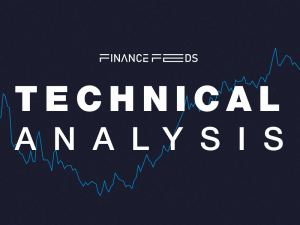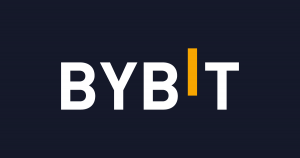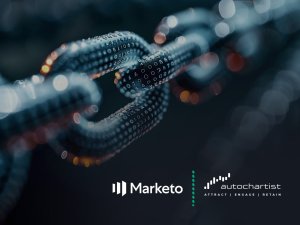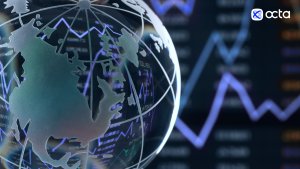Major FX dealers preparing to replace traders with robots. As a broker, would you prefer your PB to execute without humans?
As JPMorgan, the world’s largest interbank FX dealer by volume takes the reign from Citigroup, the company prepares to replace traders with robots. Would you as a liquidity taker have more faith in fully automated interbank dealing desks? We take a look
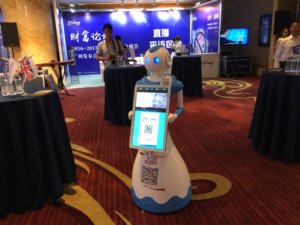
So much investment has been poured into the development of artificial intelligence (AI) over the past year within the financial technology divisions of not only professional services consultancies and IT outsourcing giants, but also the Tier 1 banks themselves.
Differentiating between real artificial intelligence, that being the use of software which ‘learns’ specific situations on a real time basis and has actual cognitive resources that can be utilized by companies to make actual decisions, whether repetitive or unique, and mechanization – that being the programming of a computer system to routinely act out a pre-determined function – is something that many bandwagonists do not do, however when cutting through the noise, there is a distinct move toward implementing self-learning technology to perform vital tasks in banks which would otherwise be performed by senior level staff.
Today, JPMorgan, which is now the largest FX dealer by global volume, having this year surpassed Citi and Deutsche Bank, and is responsible for 17% of all interbank order flow for FX internationally, has begun to develop an AI robot which will execute trades in place of human traders.
The implementation will now proceed, following a trial which demonstrated that AI is more efficient than traditional methods of buying and selling.
The robot, which has been referred to internally as LOXM, has completed its trial within the banks European Equities Algorithms division, where it has been used since earler this year, and will be rolled out across Asia and the United States in the latter part of this year.
LOXM was designed as a proprietary system to execute client orders with maximum speed at the best price, basing its decisions on data which it uses to ‘learn’ from several billion previous trades, both real and simulated, to tackle market related problems such as how to best offload large equity stakes without moving market prices.
Speaking to the Financial Times in London yesterday, David Fellah from JPMorgan’s European Equity Quant team said “Such customisation was previously implemented by humans, but now the AI machine is able to do it on a much larger and more efficient scale. So far, the European trials showed that the pricing achieved by LOXM was significantly better than its benchmark.
Many large interbank FX dealers have been making inroads into the development of AI, automation and robotics to help cut costs and eliminate time-consuming routine work. For example, UBS’s recent deployment of AI to deal with client post-trade allocation requests, which saves as much as 45 minutes of human labour per task. UBS has also brought in AI to help clients trade volatility.
JPMorgan, which is the world’s biggest investment bank by revenue, believes it is the first large Tier 1 financial institution to use AI with trade execution and said it would take rivals 18 to 24 months and an investment of “multiple millions” to come up with similar technology.
Last week, FinanceFeeds reported that, as intelligent robotics are coming more to the forefront of the agenda for large institutions, more and more positions are being prioritized for replacement by machinery with cognitive ability, an example being Nomura Research Institute’s deduction that these can be used for trading and investment strategies but human strategists still do better in some tasks than automated solutions.
A report by the Japanese Nikkei refers to data from the Nomura Research Institute concerning a comparison of human stock pickers and artificial intelligence (AI) solutions trying to do the same.
Nomura Securities now uses AI solutions to forecast where share prices will be in five minutes. Based on the information given, the system detects correlations that humans cannot find, said Satoshi Kashihara, head of electronic trading services. He also noted that computers are increasingly taking over investments of a month to a year and are now doing better for investments spanning two to three years, where human-devised strategies used to have an edge.
The last hope for human staff seems to be the time horizon of five years or longer. According to the Nomura Research Institute, humans have an upper hand when recognizing a particularly competent management team, or brand strategy, early on. The future task for human investors will be to develop an ability to discern what cannot be detected by computers.
JPMorgan’s development runs counter to this, with the bank being the very first to actively seek to replace dealers and traders with AI robots, a decision which, as the world’s largest FX dealer, having toppled Citi from its 17-year long position as the largest processor of FX order flow in the world, the bank cannot take lightly.
This is likely to be met with mixed reception. On the upside, there is no chance that groups can band together to manipulate FX benchmarks and fraudulently gain against their liquidity takers, as has been the case in the very high profile censuring by Swiss, American and British authorities in recent years against six major FX interbank dealers.
It also ensures potential cost savings and therefore, at a time during which margins are very, well, marginal, this could be passed on to institutional prime of prime brokerages hence a keener deal can be made to liquidity takers, keeping London’s ultra-efficient edge as a top quality and highly developed trading environment with fully automated trading desks and as a result lower costs.
On the downside, is it really likely that the initial period will be a worry-free one for commercial customers of Tier 1 banks that take their liquidity from them? The prime of prime brokerages, of which there are very few these days, have forged extremely complex and trust-based relationships with Tier 1 banks and maintain them on a daily basis when processing trades via their all-knowing contact at the bank that knows every aspect of their business from risk strategy to size of balance sheet.
Whether this wider-reaching understanding of the FX business can be understood by AI is yet to be proven.
”


